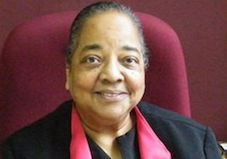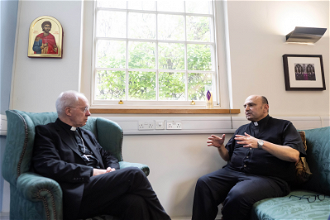Trinidad & Tobago election: Understanding the needs of citizens

Democracy is based upon the conviction that there are extraordinary possibilities in ordinary people (Harry Emerson Fosdick)
Participation in the civic life of one's nation is a key Catholic social justice principle. Citizens entitled to vote are urged to do so on Election Day on 10 August. We should all be committed to co-responsibility. As US Congresswoman, Barbara Jordan said: "The stakes are too high for Government to be a spectator sport."
Voter turnout in Trinidad and Tobago's 2015 general election was 67.27%. Can we do even better on August 10? Candidates from various political parties are already on the campaign trail, "drumming up" support to secure votes. May they see the "extraordinary possibilities" in the "ordinary people" they encounter. I reject the suggestion made by some who believe that the way to deal with citizens who were protesting in our Capital City recently is to promote contraception in those areas. Human life is a gift from God. We are yet to address seriously issues of race and class in TT.
As a member of the Council for Responsible Political Behaviour, I urge leaders, candidates, and the citizenry at large, to adhere to the Code of Ethical Political Conduct. Candidates, please display humility, moral integrity, and ask God for divine wisdom. During this period, we can use social media positively to encourage people to reflect on the issues at hand. Here are some of my recent postings on Facebook:
"Why do you want to be an MP? Do you want to serve; to make a difference; or to wield power/authority?"
"Candidates, do not let your conscience be anaesthetised. What concrete action will you take, if elected, to improve TT?"
"The challenge of building a just society involves recognising the intrinsic value of every human being and hearing the cries of those who are burdened by poverty and social exclusion; drugs, alcohol, domestic violence, sexual abuse; by the fear that is instilled in each citizen as runaway crime and violence stalk our land. In spite of our social ills, I believe that, together, we can build a better TT."
"May this election campaign help to build true kinship amongst us. How can we build mutual respect for each other? Will we ever be able to see each other as members of one human family? See Pope Francis' 2013 Peace Message: 'Fraternity, the Foundation and Pathway to Peace'. He said: 'Fraternity is an essential human quality, for we are relational beings. A lively awareness of our relatedness helps us to look upon and to treat each person as a true sister or brother; without fraternity it is impossible to build a just society and a solid and lasting peace…The basis of fraternity is found in God's fatherhood. (cf Mt 6:25-30)' ".
You may recall that Pope Francis' World Day of Peace message for January 1, 2019 was: "Good politics is at the service of peace." Let's start a conversation about how we can achieve "good politics"; how we can promote effective and efficient structures at all levels of governance to promote human dignity, human rights, and to build the common good.
And what about the principle of subsidiarity? Good governance involves putting structures in place to promote participatory governance. If good politics is to be at the service of peace, then people in local communities must have opportunities for self-determination and empowerment. As Abraham Lincoln said: "The legitimate object of government, is to do for a community of people, whatever they need to have done, but can not do, at all, or can not, so well do, for themselves---in their separate, and individual capacities. In all that the people can individually do as well for themselves, government ought not to interfere."
To achieve the common good, we must all work to create conditions in which each person can achieve his/her potential. The Compendium on the Social Doctrine of the Church reminds us that "the common good is the reason that the political authority exists [355]…to ensure the common good, the government of each country has the specific duty to harmonise the different sectoral interests with the requirements of justice [358]. The proper reconciling of the particular goods of groups and those of individuals is, in fact, one of the most delicate tasks of public authority."
In our diverse society, this is one of the most challenging tasks for politicians. Good politics requires our politicians to DO justice, including distributive justice, as "there can be no peace without justice" (Blessed Pope Paul VI).
Leela Ramdeen is Chair of the Catholic Commission for Social Justice in the Archdiocese of Port of Spain, Trinidad & Tobago, (CCSJ) and Director of CREDI





















